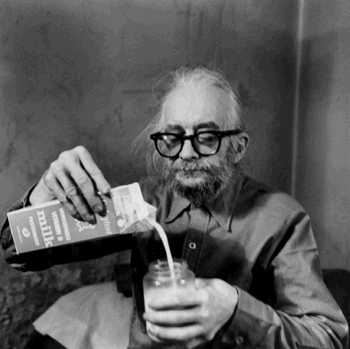“Araby” - James Joyce
“Araby” displays a brilliant analogy between the fall of man in the Bible, and the disillusionment of falling out of love. When in love, or at least infatuation, there is no such thing as shame. Daily life is centered around the power and enthusiasm held for love, and truly all else seems like “ugly monotonous child's play.” Joyce aptly describes a lack of awareness, and the joy in such bliss. “I was thankful that I could see so little,” conveys a joy and numbing desire for ignorance. From the very start of the story, the narrator illustrates his place of residence through the context of “being blind,” and the streets are silent. The main character lives in a priest's house, where religious works have been left behind, and a small yet “central apple-tree” looms in the backyard. All of these characteristics and qualities reflect the Garden of Eden. Living blindly in a priest's home, with the silence of ignorance and loneliness, represents living in the Lord's house before the fall. A fall which occurred by means of knowledge and companionship. While the apple-tree is never partaken of, its presence merely alludes to the central metaphor and theme of the story. After Eve (Mangan's sister) enters into Adam's (the protagonist's) world, it suddenly becomes noisy with life, and he has to fight to keep his love. Such is evident in the passage “these noises converged in a single sensation of life for me: I imagined that I bore my chalice safely through a throng of foes.” The “chalice” suitably symbolizes the protagonist's love, and the “throng of foes” the temptations that face him in his newly dualistic world; a world consisting of both males and females. The main character strives only to profess his love to his neighbor, and suddenly the opportunity finds him, as she puts him to the test of buying a trinket. This quest overtakes his being, and signifies Eve's plea for Adam to join in the consumption of the apple. Despite the unfulfilled request, when the protagonist leaves Araby he has learned enough about the world to demean his love, and he has fallen. He becomes conscious of the great lengths to which he has gone for Mangan's sister, of her ability to control his very thoughts and actions. This knowledge, or “vanity,” drives away his love and replaces it with “anguish and anger.” One could conclude that James Joyce held the same view of the Fall from Eden in the Bible. That hatred took the place of pure love in the time of Adam and Eve, to the point that they hated themselves, covered their bodies, and tried desperately to rationalize this evil conversion through the search for knowledge. In any case, “Araby” displays various theological and philosophical implications that perhaps even devout Christians may not have considered, thus proving the genius in Joyce's work.
Thursday, June 24, 2010
Subscribe to:
Post Comments (Atom)

No comments:
Post a Comment